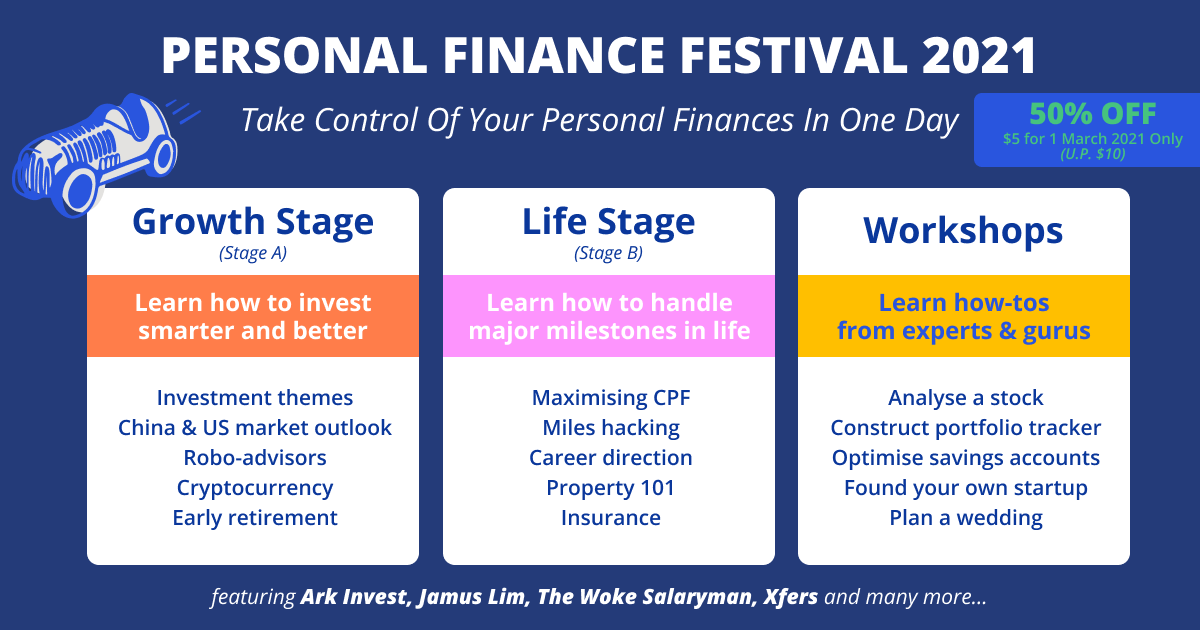Advertisement
Anonymous
I have Pro lifetime protector, max -$2500 and Personal accident - $360. Planning to surrender Pro lifetime, should I do so?
Can i have some advice as i am thinking of separating insurance and investment. Thank you!
2
Discussion (2)
Learn how to style your text
Elijah Lee
15 Jun 2020
Senior Financial Services Manager at Phillip Securities (Jurong East)
Reply
Save
Pang Zhe Liang
08 Jun 2020
Lead of Research & Solutions at Havend Pte Ltd
Insurance Portfolio Summary
Firstly, one of the most important things to do is to have a complete understanding of your existing insurance portfolio.
Key Reasons Why:
Why Every Client needs an Insurance Policy Summary
Objective
Next, go back to the inital phase when you decide to get this policy. Evalaute the reasons and how it is able to help you achieve your goals. Now, plan forward for the long-term. Evaluate and understand whether the plan is able to help you. If not, what could be the possible reasons for its shortfall? Thereafter, evaluate how separating an insurance coverage and investment is able to overcome this shortfall.
About AIA ProLifetime Protector
For AIA ProLifetime Protector, it works on a basis of sum-at-risk. In brief, once your investment value is more than the sum-assured, there will not be any insurance charges. This is unlike a term insurance policy where you will usually pay the premium throughout the entire coverage term.
More Details:
What is a Term Insurance Policy
Investment-Linked
On the other hand, if you are concerned about the charges that are associated with the policy, then you should check the investment allocation and find out whether your policy is optimised. Speak with your agent to get professional advice to this end. Meanwhile, here is their latest fund performance. AIA Investment-Linked Fund Performance Update
Estate Planning
What's more, a point that is often overlooked is the simplicity of an insurance policy. For instance, we can include an early critical illness waiver such that the future premium can be waived when criteria is met. In other words, your investment still get fresh funds while you don't have to contribute a single cent.
Upon our demise, our assets are frozen immediately. This means that our investment will be subject to market fluctuations till your family completes either the probate process or the administrative process. During this period, who will bear the loss?
More Details:
The Administrative Process on Dying without a Will in Singapore
The Probate Process on Dying with a Will in Singapore
In any case, there is nothing wrong with separating your insurance coverage and wealth accumulation. Before you do so, you should do comprehensive financial planning for your long-term future. This ensures that you live with a peace of mind.
I share quality content on estate planning and financial planning here.
Reply
Save
Write your thoughts
Related Articles
Related Posts
Related Products

FWD Term Life Plus Insurance
4.8
10 Reviews
FWD Term Life Plus Insurance (Renewable Term)
$1,500,000
MAX SUM ASSURED
5 years
PREMIUM TERM
Death, Terminal Illness
COVERAGE

Tiq DIRECT - Etiqa Term Life Insurance
4.3
3 Reviews

Great Eastern GoGreat Term Life Insurance
5.0
1 Reviews
Related Posts
Advertisement











Hi anon,
I'd recommend that you speak to a trusted advisor first before you take any action.
It would seem that you see the benefits of keeping insurance separate from investment. I stand by that principle also and there are really much more cost effective solutions for insurance in my view. Investments are also something that really should be kept in silo apart from insurance. You shouldn't be bound by the constrains of an insurance policy if you want to invest.
At the moment, you are still afforded the coverage that the policy provides you with. Thus, any action taken cannot be at the expense of your coverage amount. Keep that in mind before you commit to taking any action.